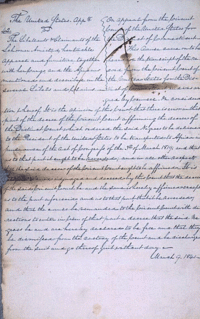So why do I think that after Greece, Spain could be the next to experience a ballot box Revolution?
Hmm…
Gürtel: A Dangerous Spanish Silence
The Spain Report
Friday, March 6th, 2015
The Gürtel investigation is going to trial. The suspects have been charged. The Popular Party as an organisation will now officially be tried, not as a suspect prosecuted for a crime but for being a “profit seeking participant” that benefited from the allegedly criminal fraudulent activities of its three former treasurers whose activities spanned a 20-year period, fundamentally the same period that the party has existed for, although the specific crimes 40 people have now been charged with took place between 1999 and 2005.
Spain’s governing party will be ordered to repay €245,492. A quarter of a million euros. Ana Mato, who was Mr. Rajoy’s Health Minister until the end of November last year, will have to hand back €28,467. She famously claimed she did not know she had a brand new Jaguar parked in her garage at home. She is still a sitting MP. The Public Prosecutor is seeking 42 years in prison for Luis Bárcenas, the most well-known of the three former party treasurers, who was recently released from prison after 18 months on remand during the investigation. Those accused must post a total of €449 million in bonds to cover restitution liabilities. Half-a-billion euros.
…
Spanish voters know there is nothing they can do about corruption until the elections, and then they cannot get rid of individual rotten apples because, as Mr. Rajoy is demonstrating, it is he who decides who will be the party boss in each Spanish region and major city, not voters, party members or even the senior regional leaderships themselves, who for weeks have been on edge over the Prime Minister’s decision. The freshly anointed chiefs will decide who gets on their coveted electoral lists, who is to be on their team with a chance of playing in the next round. Thus Spain races from one end of the political spectrum to the other, at the national and regional levels. There is no middling option seeking balance, no gentle pruning of dead or dying branches; a party reigns strong in a place for many years and then, apparently suddenly, is out of favour with the voters and out of office.The implosion of senior party leadership at different levels and the swirling undercurrents of corruption will make for a very exciting electoral year in 2015 if they all come together in time to anger Spanish voters enough for them to decide radical change is what is now needed, that the current lot just won’t do anymore, that this is it, their only chance in four years to do something about it. Whatever the outcome.
(h/t Lambert @ Naked Capitalism)
The Gürtel case is an ongoing political corruption scandal in Spain, which implicates officers of the People’s Party (PP), Spain’s major right-wing party, some of which have been forced to resign or have been suspended. The case came to public attention in early 2009, but for the most part the suspects are still awaiting trial. Gürtel is one of the largest corruption scandals in recent Spanish history, and there are related scandals, such as the Barcenas case, which have received media attention in their own right.
The investigative operation was given the name Gürtel in a cryptic reference to one of the principal suspects, Francisco Correa (Correa means belt in English, Gürtel in German). Correa is a businessman who cultivated links with PP officers. The Spanish police began to investigate his activities in 2007 after information was obtained from a whistle-blower regarding alleged corruption in the Madrid area.
The accusations include bribery, money laundering and tax evasion, and implicate a circle of businessmen led by Correa and politicians from the People’s Party. The alleged illicit activities relate to party funding and the awarding of contracts by local/regional governments in Valencia, the Community of Madrid and elsewhere.
Early estimates of the money loss to public finances amounted to at least €120,000,000., while some of the alleged bribes paid in return were not particularly large (for example, items of luxury clothing).
It’s not that you can buy politicians, it’s that it’s so cheap.
We’ll try to remain serene and calm, when Alabama gets the bomb.

 On this day in 1841,
On this day in 1841, 
 This last week, there was the surprising start to a headline in the Washington Post that began, “GOP House and White House agree on something” … and that something was:
This last week, there was the surprising start to a headline in the Washington Post that began, “GOP House and White House agree on something” … and that something was:  On this day in 1911,
On this day in 1911,  Following the
Following the 

Recent Comments